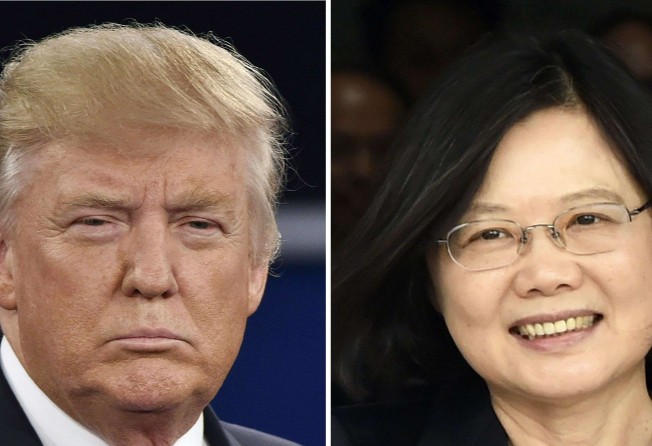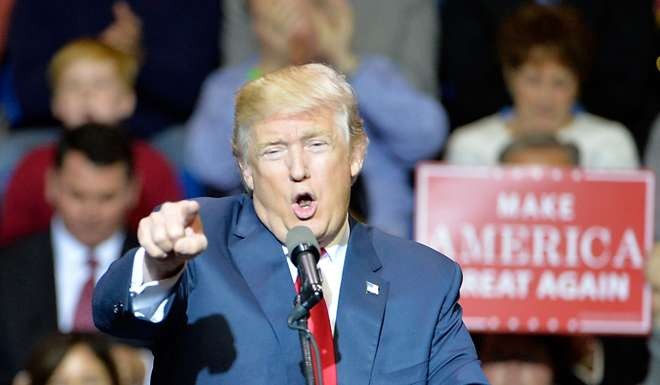Trump likely to strengthen military ties with Taiwan to neutralise Beijing’s regional influence, think tank warns
Beijing’s National Academy of Development and Strategy warns China must be prepared for ‘unprecedented challenges’ from US president-elect

The administration of US President-elect Donald Trump is likely to strengthen military ties with Taiwan and will use the self-ruled island to counterbalance Beijing’s influence in the region, a mainland think tank warned.
In a report published by the National Academy of Development and Strategy at Beijing’s Renmin University of China, Yang Qijing said Trump might also boost US security engagement with other Asian nations.
Watch: Donald Trump named Time’s Person of the Year
The National Academy of Development and Strategy, which was created in 2013, provides analysis to Chinese state leaders for “internal reference”, according to its website.
Trump may not be necessarily like [Taiwan President] Tsai Ing-wen, but he would definitely not give up the important chance to constrain China
Yang, a professor at the university’s school of economics, said in the report dated late November that Trump would ignore opposition from Beijing and insist on his plan to sell weapons to Taiwan.
“Trump may not be necessarily like [Taiwan President] Tsai Ing-wen, but he would definitely not give up the important chance to constrain China,” Yang said.
“Trump, who is known for tough gestures and disregard for 'political correctness’, will possibly not care much about China’s opposition and insist on selling arms to Taiwan. By doing this, the US can make a lot of money while creating problems for China.”
Relations between China and US were plunged into fresh uncertainty over the weekend after a controversial call between Trump and Tsai, whom Beijing believes is pushing for the formal independence of Taiwan.
The call triggered concerns in Beijing over the incoming administration’s foreign policy in the region.
Some mainland observers said earlier that boosting arms sales to Taiwan, a self-governing island that Beijing regards as an inalienable part of China’s territory, would form part of Trump’s policy agenda to strengthen the US military and manufacturing sector.

“The unspoken words behind the ‘Make America Great Again!’ is that China’s economy, especially its manufacturing industry, is making US not so great as before,” Yang wrote. “So we should not question [the determination of the ] Trump administration to mobilise any political, economic and military resources to protect and advance US’ economic interest, or even make it its first priority.”
Yang warned that Trump could prove to be the “most unpredictable and challenging” US president, who might try to make use of the US’ existing “superpower status” or adopt unconventional means to keep jobs in the US, including introducing protectionist measures against China’s manufacturing, which is losing its competitive edge because of a continuing rise in wages and other costs.
Although Trump had threatened to withdraw from the Trans-Pacific Partnership, a cornerstone of the US’ economic pivot to Asia, taking such a step was unlikely to harm Washington’s Asian allies, who would choose to stand firmly alongside US in the face of the rising power of China, Yang said.
“Given the facts that China’s cost advantage in the manufacturing industry is disappearing, Trump’s administration could likely pose an unprecedented and tremendous challenge to China,” Yang concluded. “In response, China must prepare countermeasures.”